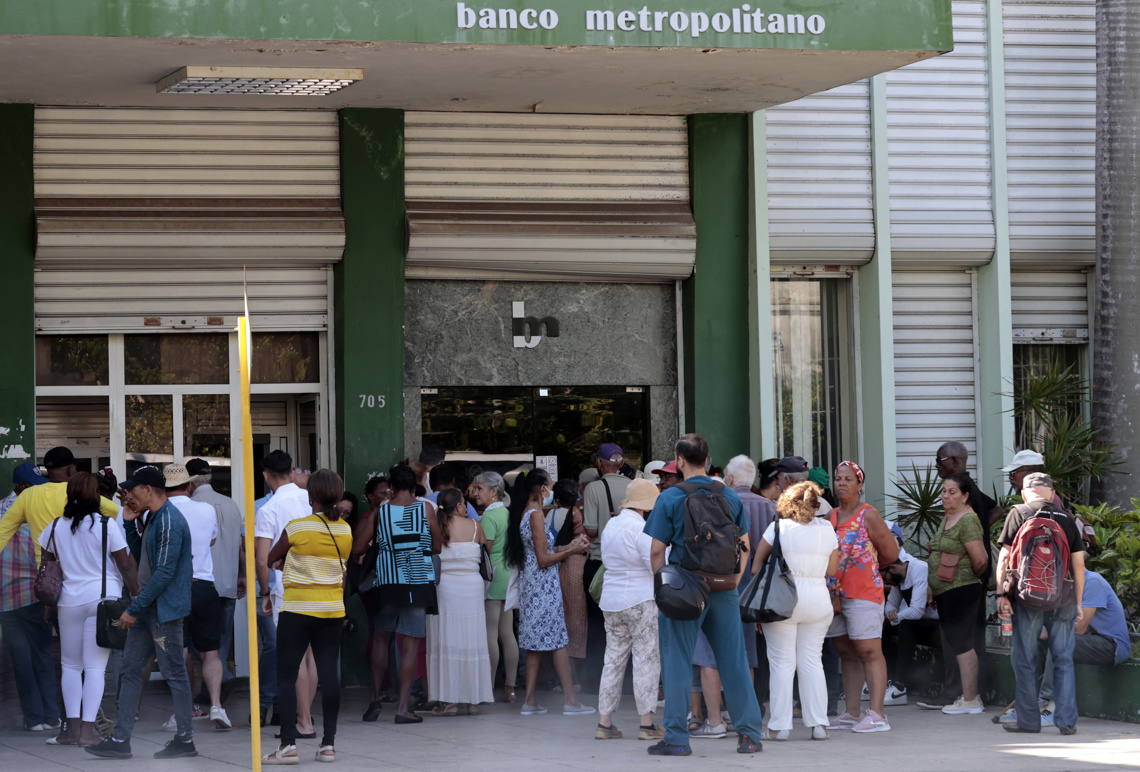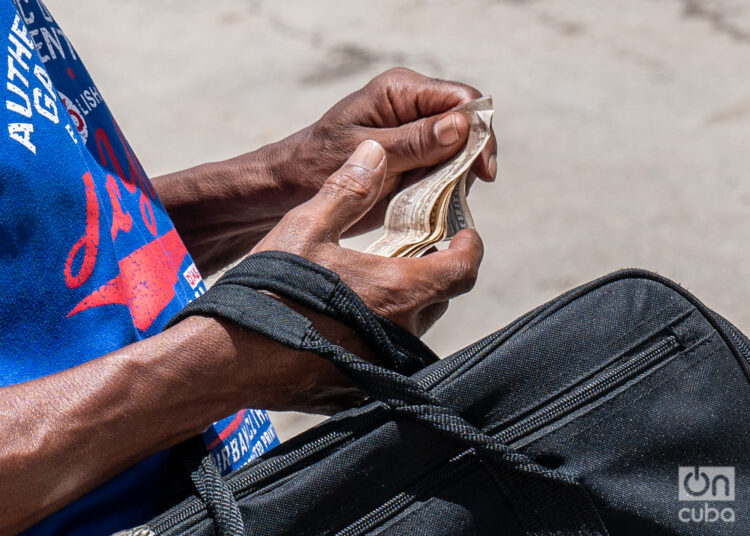At the recent National Assembly of People’s Power, held in mid-July 2025, Cuba’s top leaders referred to the need to seek every avenue to boost the country’s foreign currency earnings, including foreign investment.
This need for Cuba is well known. However, the growth of foreign investment is not keeping pace with expectations, much less with the demands of the national reality.
Recently, some joint ventures have been established that draw attention for certain reasons:
- Many of them belong to the commerce (wholesale and retail) and transportation sectors. This is not to question the existence of joint ventures in these sectors, but to point out that it seems more difficult to attract foreign investment in productive sectors, which are precisely the ones the country needs to grow.
- Until recently, foreign investment in commerce and transportation was not permitted, with the aim of preserving the state monopoly. However, the scarce availability of resources has left state-owned commercial enterprises short of supplies, forcing a rethinking of this position.
- The state monopoly on commerce has been eroded, as MSMEs have occupied the spaces abandoned by public enterprises. In this context, it is worth asking whether the recent opening to foreign investment in commerce seeks to compete with domestic private entrepreneurs. It is curious that this was not promoted earlier, when all commerce was controlled by the state. Is it still preferred that foreign investors occupy market shares that could be occupied by Cubans, just to prevent profits from ending up in domestic private hands? Joint ventures often enjoy advantages that MSMEs cannot afford, such as selling in foreign currency and not having to convert Cuban pesos (CUP) into foreign currencies.
- Often, to justify these investments for the decision-makers who approve them, it is mentioned that these companies will develop export activities. However, if they do not produce tangible goods, but rather focus on marketing and transportation, what type of exports could they carry out that the producers could not do directly?
- Furthermore, the foreign partners of these retail companies are not widely recognized as players in the retail sector in their countries of origin. Therefore, it is unlikely that they would contribute in-depth knowledge of the sector’s know-how. Most likely, they will begin their training in Cuba, as domestic MSMEs do, and will not have a broad supplier network or the negotiating capacity to obtain better prices.
- Will it be so difficult to attract partners from countries like Mexico, Brazil, Spain, France or Germany, where there are established retail chains with international reach? These partners would have experience, purchasing power and access to diverse manufacturers. It may be difficult to attract them, not only because of pressure from the United States, but also because many of these companies would be unwilling to operate amid the conditions and difficulties that foreign investors face on the island.
Let’s delve a little deeper into the operation of these retail companies.
In July of this year, the creation of the joint venture Bioamazonas Alimentos y Otros Bienes de Consumo, S.A. was approved, the result of an alliance between the Cuban company Mercalhabana and the Brazilian company Bioamazonas Indústria e Comércio de Medicamentos Fitoterápicos.
Its main objective is the wholesale and retail marketing of food and non-food products, as well as raw materials, in addition to offering logistics services for the transportation of goods.
During the signing ceremony, reported on Cuban television, an executive of the Brazilian company assured that the operations would be geared toward meeting the demand of the Cuban market, with products sold at lower prices and more accessible to the population.
“I’m making a dream come true: that there will be no shortage of products on Cubans’ tables. We will strive to ensure that Cubans can have quality food at affordable prices in their homes, so that the country’s infrastructure can improve.”
Of course, these grandiloquent statements — frequent at grand openings, marketing campaigns and other similar events — must always be contrasted with reality.
Context in which the company will operate
Let’s assume the executive was speaking with complete honesty and after having assessed his company’s real capabilities. However, it’s also possible that he or she is unaware of fundamental aspects of the context in which he or she will operate: those “distortions” that, somewhat indulgently, we use to describe the complexities of the Cuban economy.
Perhaps the executive compared retail prices in the domestic market and concluded, like many others, that he or she could establish a successful company in Cuba, capable of offering products at significantly lower prices. Such a conclusion would only reveal a profound lack of understanding of the country’s economic reality.
First, these companies must define what currency they will sell in. If they operate only online or only accept international cards (Visa, Mastercard), they will ensure their payments abroad and will be able to replenish their stock, but they will have a very limited customer base.
If they sell in cash in USD or through national currency cards (such as Classic cards), they will reach more people, but they will remain inaccessible to the majority of the population, who do not earn income in foreign currency and have no way of acquiring foreign currency in an official market.

If they sell in national currency, as MSMEs are required to do, they would then have no way to convert the Cuban peso (CUP) into foreign currency — at least until now — or to transfer funds abroad to pay debts and replenish their businesses.
Let’s suppose they choose to sell in cash in USD and through Classic cards, which entails less risk than selling in CUP and also allows for a broader customer base. Let’s also suppose they encounter no obstacles to transferring income abroad and that they manage to acquire products at prices that allow them to establish sales margins comfortable enough to offer lower prices than the Panamericana, CIMEX and TRD chains, all belonging to GAE (Grupo de Administración de Empresas S.A.).
Will these joint ventures be able to set the prices of their products to compete in the market with state-owned chains and benefit the population with better prices?
Who sets the prices?
These foreign executives could be overlooking the existence of a Ministry of Finance and Prices (MFP), which not only determines the prices of state-owned companies but also the retail prices of Cuban joint ventures. Currently, business executives do not have the power to freely set retail prices.
Policies for approving joint ventures in the retail sector are already being relaxed, but will this reality regarding price approval also change?
The often-restrictive pricing policy has even reached absurd levels. When a joint venture faces price increases for its raw materials, it finds it very difficult to obtain an update to the prices previously approved by the MFP, “so as not to affect the population,” forcing it to sell with considerably lower profit margins.
To get new prices approved, they have had to resort to variations such as changing the packaging size, launching a new brand name for a “new product” (even though its contents are the same), or introducing a slight change to the previous product, without any technical justification. Another distortion?
The foreign currency pricing policy also seeks to ensure that the commercial margin not only covers import and distribution costs, as well as the retail chain’s profit, but also to generate a foreign currency surplus to fund social programs and other government needs.
This is the well-known 2.4 coefficient over costs (a 140% margin), or even higher for some products, or lower for basic necessities, depending on the defined objectives.
Would it be approved for a joint venture to offer lower prices than state-owned chains in foreign currency, jeopardizing the application of this coefficient in those chains and, therefore, the possibility of obtaining revenue for other state priorities?
Several options
Given that state-owned chains today face multiple difficulties in adequately supplying their stores, which affects foreign currency income compared to previous times, they may even be willing to accept this price competition with joint ventures. But has consideration been given to how to equally guarantee benefits to the state through other means, or has this issue ceased to be a priority?
As in so many aspects of life, there are several options to choose from.
One alternative would be to maintain the current scheme: the state collects the usual taxes (on profits, sales, etc.), as well as the portion of the profits corresponding to the Cuban partner, who normally contributes premises or usufruct rights. Price approval would remain in the hands of the MFP, as it has been until now.
The other option is to grant greater autonomy to joint ventures so they can freely set the prices of their goods. However, to ensure that the State does not receive revenue solely from the aforementioned concepts, a sales tax would have to be established or adjusted, applicable exclusively to retail sales in foreign currency.
Regardless of the model approved, if joint ventures achieve greater purchasing efficiency, cost savings and an increase in sales volume per square meter of store, they could generate better results for both shareholders and the State.
Special Tax on sales in foreign currency
Ultimately, this means giving companies greater autonomy when setting prices, ensuring the State an adequate share of profits through other means.
Although a Special Tax on sales in foreign currency — say, 40%, or whatever is established — may seem high or higher than the VAT in other countries, the objective is to bring Cuban business practices closer to international standards, with less state interference in business-related decisions, such as price setting.
Price controls could be exercised through fiscal means — stimulating or disincentive — such as a Special Tax. Even if joint ventures were able to set their prices freely, this tax could generate a larger contribution to the State than the current regulated system, while simultaneously improving prices for the end consumer.
On the other hand, if there are already state-owned stores and joint ventures that sell in foreign currency, it is unclear why MSMEs are not yet authorized to sell in those currencies. This is especially true when the workforce in these businesses is better paid than that of state-owned stores and joint ventures, which raises the population’s standard of living through employment, and not solely through remittances or foreign aid. Could someone explain this?








